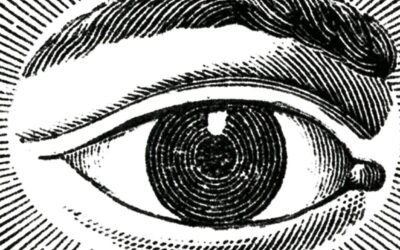5 Common Therapy Myths Debunked: Why Seeking Help Matters
Understanding the Barriers to Mental Health Treatment
In today’s fast-paced world, prioritizing mental health is crucial. Yet, many individuals hesitate to seek therapy due to persistent misconceptions. This article aims to debunk these myths and provide valuable insights to help you make an informed decision about seeking therapy.
Key Takeaways:
- Therapy is more affordable than you might think
- The therapy experience differs from movie portrayals
- Everyone has the potential to benefit from therapy
- Finding the right therapist is crucial for success
- Therapy should be a comfortable and empowering experience
Myth 1: Therapy is Too Expensive
One of the primary reasons people avoid therapy is the belief that it’s unaffordable. However, this isn’t always the case:
- Many therapists offer sliding scale fees based on income
- Some work at non-profit counseling centers with lower rates
- Insurance often covers mental health services
- Free or low-cost alternatives are available in many communities
Don’t let financial concerns prevent you from seeking the help you need. Explore your options and find a solution that fits your budget.
Myth 2: Therapy is Just Like in the Movies
Popular culture often misrepresents therapy, leading to unrealistic expectations. In reality:
- Therapy is highly personalized and varied
- Different approaches cater to diverse needs (e.g., CBT, EMDR)
- Sessions focus on your unique concerns and goals
- Therapists don’t force emotions or dictate your experience
Finding a therapist whose approach aligns with your expectations is key to a positive therapy experience.
Myth 3: Therapy Won’t Help Me
The fear of being “beyond help” can be paralyzing. However:
- Everyone has the capacity to improve their quality of life
- Therapy is a valuable tool for personal growth
- If one approach doesn’t work, others are available
- The key is finding the right therapist and method for you
Remember, seeking help is a sign of strength, not weakness.
Myth 4: All Therapists Are the Same
While negative experiences can be discouraging, it’s important to remember:
- Therapists vary in skills, approaches, and personalities
- Finding the right fit is crucial for successful therapy
- It’s okay to try different therapists until you find one you’re comfortable with
- A good therapist-client relationship is fundamental to progress
Don’t let one bad experience deter you from the potential benefits of therapy.
Myth 5: Therapy is Unpleasant and Confusing
Some worry that therapy will be uncomfortable or bewildering. In reality:
- A skilled therapist prioritizes your comfort and understanding
- Therapy should be empowering, not distressing
- Open communication with your therapist is essential
- If you’re confused or uncomfortable, it’s important to voice your concerns
The right therapist will work with you to ensure a beneficial and clarifying experience.
Conclusion: Embracing Therapy for Better Mental Health
Therapy is a powerful tool for personal growth and mental well-being. By addressing these common myths, we hope to encourage more individuals to seek the help they need. Remember:
- Affordable options exist
- Therapy is personalized to your needs
- Everyone can benefit from therapy
- Finding the right therapist is key
- Therapy should be a positive, empowering experience
Taking the step to seek therapy is a courageous act of self-care. With the right therapist and approach, it can be a transformative journey towards a happier, healthier life.
Are you ready to explore the benefits of therapy? Don’t let these myths hold you back from improving your mental health and overall well-being.
For more insights on mental health and therapy, check out our podcast: Get Therapy Birmingham
References
- Corrigan, P. W., et al. (2014). Psychological Science in the Public Interest, 15(2), 37-70.
- Mojtabai, R., et al. (2011). Psychological Medicine, 41(8), 1751-1761.
- Vogel, D. L., et al. (2006). Journal of Counseling Psychology, 53(3), 325-337.
- Wampold, B. E. (2015). World Psychiatry, 14(3), 270-277.
- Swift, J. K., & Greenberg, R. P. (2012). Journal of Consulting and Clinical Psychology, 80(4), 547-559.
Further Reading
- Norcross, J. C., & Wampold, B. E. (2018). Journal of Clinical Psychology, 74(11), 1889-1906.
- Hanson, R., & Mendius, R. (2009). Buddha’s Brain: The Practical Neuroscience of Happiness, Love, and Wisdom.
- Brach, T. (2003). Radical Acceptance: Embracing Your Life with the Heart of a Buddha.
- Siegel, D. J. (2010). Mindsight: The New Science of Personal Transformation.
- Yalom, I. D. (2002). The Gift of Therapy: An Open Letter to a New Generation of Therapists and Their Patients.
Bibliography:
- Corrigan, P. W., Druss, B. G., & Perlick, D. A. (2014). The impact of mental illness stigma on seeking and participating in mental health care. Psychological Science in the Public Interest, 15(2), 37-70.
- Mojtabai, R., Olfson, M., Sampson, N. A., Jin, R., Druss, B., Wang, P. S., … & Kessler, R. C. (2011). Barriers to mental health treatment: results from the National Comorbidity Survey Replication (NCS-R). Psychological Medicine, 41(8), 1751-1761.
- Vogel, D. L., Wade, N. G., & Haake, S. (2006). Measuring the self-stigma associated with seeking psychological help. Journal of Counseling Psychology, 53(3), 325-337.
- Wampold, B. E. (2015). How important are the common factors in psychotherapy? An update. World Psychiatry, 14(3), 270-277.
- Swift, J. K., & Greenberg, R. P. (2012). Premature discontinuation in adult psychotherapy: A meta-analysis. Journal of Consulting and Clinical Psychology, 80(4), 547-559.
Continued Reading:
- Norcross, J. C., & Wampold, B. E. (2018). A new therapy for each patient: Evidence‐based relationships and responsiveness. Journal of Clinical Psychology, 74(11), 1889-1906.
- Hanson, R., & Mendius, R. (2009). Buddha’s Brain: The Practical Neuroscience of Happiness, Love, and Wisdom. New Harbinger Publications.
- Brach, T. (2003). Radical Acceptance: Embracing Your Life with the Heart of a Buddha. Bantam.
- Siegel, D. J. (2010). Mindsight: The New Science of Personal Transformation. Bantam.
- Yalom, I. D. (2002). The Gift of Therapy: An Open Letter to a New Generation of Therapists and Their Patients. HarperCollins.
























0 Comments